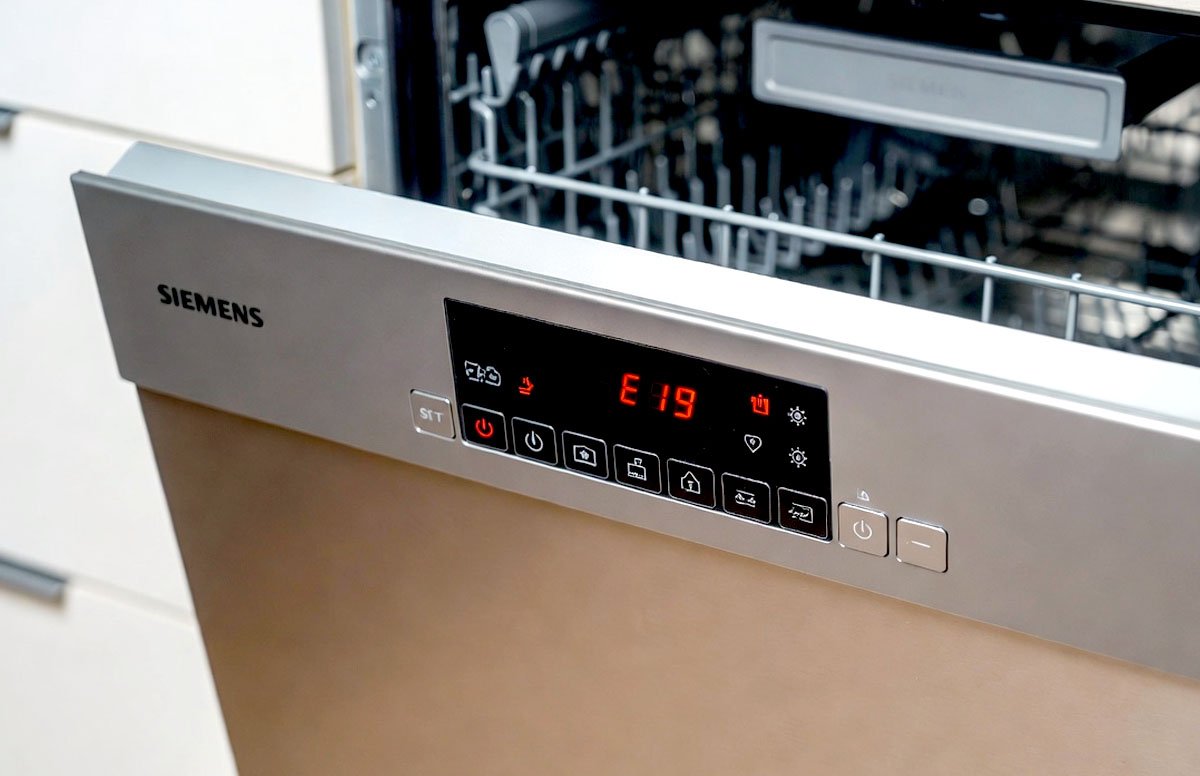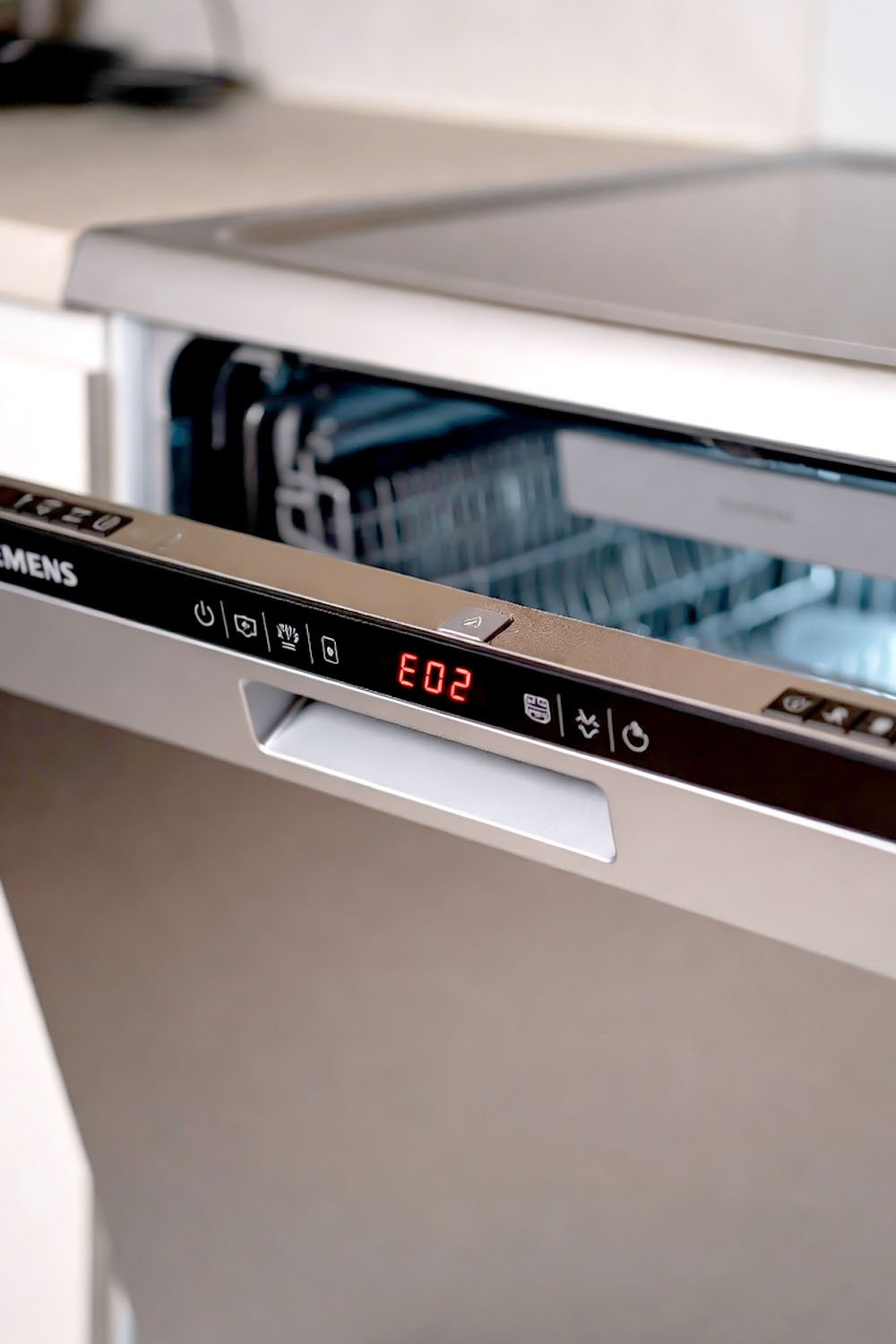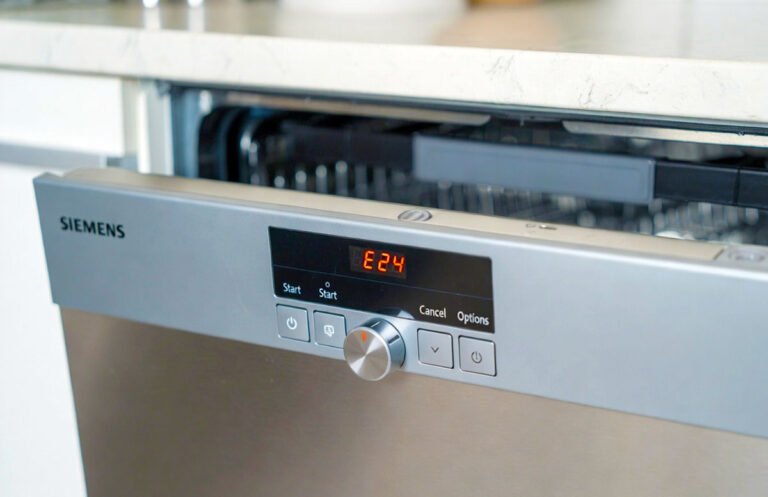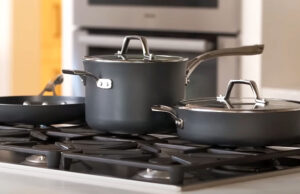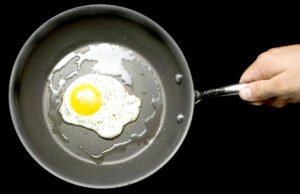As an Amazon Associate, I earn from qualifying purchases at no extra cost to you.
Does a Dishwasher Save Water? Here’s What You Need to Know
Have you ever wondered if using a dishwasher really saves water? You’re not alone! Many people think handwashing dishes is the best way to save water. But when you consider the facts, you might be surprised. In this post, we’ll explore how dishwashers actually use water, whether they save water compared to handwashing, and how you can get the most out of your dishwasher.
How Dishwashers Save Water
You might be surprised to learn that dishwashers can actually save water compared to handwashing. While it might seem like using a machine would use more water, modern dishwashers are designed to be much more efficient than we think. When you handwash dishes, you usually leave the faucet running for the entire time, which uses a lot of water. But with a dishwasher, the water is used in a controlled and efficient way.
A typical dishwasher uses around 3-4 gallons of water per load. In comparison, handwashing dishes can use up to 27 gallons of water, depending on how long the faucet stays on. That’s a huge difference! Dishwashers also use water in cycles, so they rinse and clean dishes without wasting any.
So, if you’re washing a lot of dishes, a dishwasher is probably saving you a lot of water. This is especially true if you’re using newer models, which are designed to be as eco-friendly as possible. They even use sensors to measure how dirty the dishes are and adjust the water amount accordingly. This smart technology makes dishwashing much more efficient.
How Much Water Does a Dishwasher Really Use?
Let’s break it down a bit more to see how much water dishwashers really use. Dishwashers typically use between 3 and 5 gallons of water per cycle. This number can vary depending on the dishwasher’s age, model, and size, but newer dishwashers are generally much more efficient than older models. They also use less water for smaller loads, so even if you’re not filling the dishwasher completely, it still won’t use as much water as handwashing.
In comparison, handwashing dishes uses a lot of water. If you wash dishes under a running tap, you could be using anywhere from 2 to 6 gallons of water every minute! That means if you’re washing dishes for 10 minutes, you could be using up to 60 gallons of water. Even if you turn off the tap while scrubbing, the amount of water used is still likely to be higher than what a dishwasher uses.
One of the biggest benefits of dishwashers is that they rinse dishes efficiently, using water in a way that handwashing can’t match. Even if you think you’re saving water by washing dishes by hand, you may actually be using more than you think.
Can Dishwashers Be Eco-Friendly and Save Water?
Yes! Dishwashers can absolutely be eco-friendly and save water, especially if you use them the right way. Choosing a water-efficient dishwasher can help reduce your water usage and lower your water bill. Modern dishwashers come with features like sensors that adjust the water usage based on the size of the load and how dirty the dishes are. This means you can wash a full load of dishes without wasting water.
For an even more eco-friendly experience, try to run your dishwasher only when it’s fully loaded. Running it with just a few dishes means that you’re not maximizing the water-saving benefits. If your dishwasher has an eco-mode, it’s a good idea to use it, as it will use less water and energy while still doing a great job cleaning your dishes.
Another important factor is choosing energy-efficient models. Many newer dishwashers are Energy Star rated, which means they meet high standards for energy and water efficiency. So, by choosing an energy-efficient model, you’ll not only save water, but you’ll also save money on your energy bills.
Additionally, make sure your dishwasher is well-maintained. Regular cleaning and ensuring the dishwasher’s filter is clear can help it run more efficiently. The less strain it has, the less water it needs to use. Taking good care of your dishwasher helps it work at its best, making it a win-win situation for both you and the planet.
Does Handwashing Dishes Really Use More Water Than a Dishwasher?
Yes, in most cases, handwashing dishes does use more water than a dishwasher. As mentioned earlier, if you leave the faucet running while washing, you could be using a lot of water in a very short time. Even if you turn off the faucet while scrubbing, it’s still hard to control how much water you’re using.
Many people also tend to rinse dishes before putting them in the dishwasher, which is unnecessary. Dishwashers are designed to handle the dirt and food left on the dishes, so there’s no need for extra rinsing. If you rinse every dish before placing it in the dishwasher, you’re adding unnecessary water usage to the process.
However, the key to making handwashing more water-efficient is to fill up a basin or sink with water and wash your dishes in that. By doing this, you’ll avoid the constant flow of water and reduce waste. Still, even in the best case, handwashing dishes generally uses more water than running a full dishwasher load.
One important note is that washing smaller amounts of dishes might lead to more water waste. For example, if you only have a few dishes to clean, it might be better to wash them by hand. Running a dishwasher with just a couple of plates or cups isn’t as efficient and won’t save as much water.
I hope this article helped you understand how dishwashers save water and why they can be a more water-efficient option compared to handwashing dishes. Remember, the key to saving water with a dishwasher is making sure it’s full before running it and choosing an energy-efficient model. Happy dishwashing!
Frequently Asked Questions
Is it better to wash dishes by hand or use a dishwasher?
In most cases, a dishwasher uses less water than washing dishes by hand, especially if you have a modern, efficient model. It’s a good idea to use the dishwasher for larger loads to save water.
Can dishwashers save electricity too?
Yes, modern dishwashers are designed to be energy-efficient. They use less electricity and water compared to older models, especially if you run them in eco-mode.
Do I need to rinse dishes before putting them in the dishwasher?
No, it’s not necessary to rinse dishes before placing them in the dishwasher. The dishwasher is designed to clean dishes with the food residue still on them, which helps save water.
Is it okay to run the dishwasher with a small load?
It’s not ideal. Running the dishwasher with only a few dishes wastes water and energy. Try to wait until you have a full load for the most efficient use of water.
Can a dishwasher clean pots and pans effectively?
Yes, most dishwashers are equipped with special cycles that can clean pots and pans effectively. However, very large pots may not fit, and some heavy-duty cooking grease may require pre-treatment.
Do I need to use detergent every time I run the dishwasher?
Yes, detergent helps break down grease and food particles, ensuring your dishes come out clean. However, using too much detergent can lead to residue buildup.
Is it bad to leave dishes in the dishwasher for too long?
Leaving dishes in the dishwasher for an extended time after the cycle is done may cause them to dry with water spots or become smelly. It’s best to unload the dishwasher shortly after the cycle ends.
Can I use the dishwasher without hot water?
Most dishwashers work best with hot water, as it helps break down grease and food particles. However, some dishwashers have built-in heating elements to heat the water if necessary.

